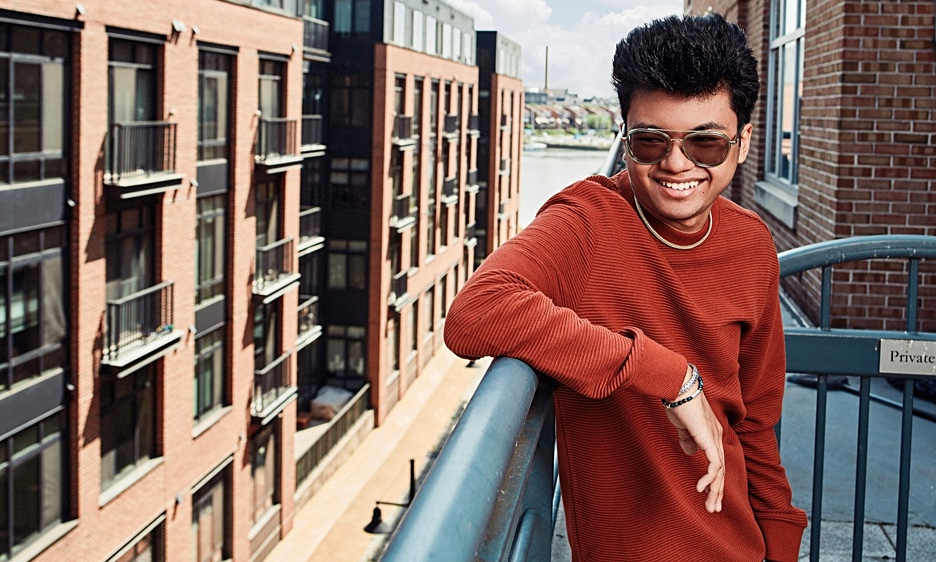Home » Jazz Articles » Live Review » Joey Alexander Trio at Chris’ Jazz Café
Joey Alexander Trio at Chris’ Jazz Café

Chris' Jazz Café
Philadelphia, PA
March 8, 2024
All musical genres, and specifically jazz, have produced any number of musicians who blossomed in childhood and already in their teens were performing and competitive with the masters. The greatest historical example of course was Wolfgang Amadeus Mozart, and a latter-day example was Leonard Bernstein. In jazz, Philadelphia's own Pat Martino moved to Harlem at age 14, was mentored by the great guitarist Les Paul, and of whom George Benson said, "When I met him, he was at the ripe old age of 17 and already a master technician." One could cite many others who sprung up in their youth and gave so much to the music.
Still, there is something unique about pianist/composer/arranger Joey Alexander, who at age 10 won Grand Prix at the 2013 Master-Jam Fest, moved with his parents from Bali, Indonesia, to New York, was heralded and supported by Wynton Marsalis, Herbie Hancock, and others, and for the last ten years has been a highly successful New York and internationally touring pianist and group leader, and has made seven albums for the Motema, Verve, and Mack Avenue labels. What is unique about Alexander is that he mastered much or most of the jazz idiom before his teens, as if his brain or spirit, whichever you prefer, was already programmed in that direction, a true wunderkind, as it were.
So, it was thrilling to hear him on a brisk and windy late-winter Friday night in a trio format, with his two masterful sidemen, bassist Kris Funn and drummer Jonathan Barber, at the intimate Chris' Jazz Café in downtown Philadelphia. It was clear from the first notes that, after a few years on the scene, Alexander was not a kid anymore, but already a seasoned working musician who had a complete grasp of everything he was doing. He gently spoke a few words to the full-house audience, established rapport, and got his trio in sync with one another. His technique on the piano was suburb, with a beautiful tone and attack worthy of a classical concert pianist. To his right was a keyboard instrument called the Mellotron, which generates its sound using analogue recordings on audio tape (!) (When a key is pressed, a tape connected to it is pushed against a playback head, as in a tape deck.) With this instrument, he inserted sounds of various instruments such as flute, marimba, and guitar. He did this with finesse, maintaining the rhythmic pulse and moving easily between the two instruments.
Alexander's creativity was immediately evident in his realization of the jazz standard, "Angel Eyes," which he made his own by taking it at a very slow pace and using the harmony to create his own melodic pathways, almost like what the bebop players called a "contrafact." He showed his ability to "tell a story," which is what makes music awaken us to its meaning. The rhythm section came in, and the group developed a motif around the recurrent sound of the dominant. Soon it began to have a touch of a "country" feel, which recurred often in his playing. Alexander concluded with an organ sound from the Mellotron, emphasizing the song's "film noir" ending: "Got to find who's now number one, and why my angel eyes ain't here."
Alexander did several original and standard songs from his most recent album, Continuance (Mack Avenue, 2023). These tunes were all ballads, which was surprising, because he can knock the socks off lightning speed bebop, but this didn't happen in this set. He is a brilliant improviser and masterfully inserted surprising sonorities and phrasing during the performance. He seemed to channel Keith Jarrett's style at many points, and at times, his fondness for the work of Ennio Morricone, the Italian composer of Hollywood westerns, came through loud and clear. There were also some wonderful polyrhythmic interactions between piano, bass, and drums at a very high level of intricacy.
In the tune, "I Wish I Knew," a favorite ballad of Jarrett, a touch of Art Tatum's way of through-improvising long lines, appeared in his playing. There was also a superb drum solo by Barber, who with Funn comprised a rhythm section to die for. We also began to hear quite a bit of the McCoy Tyner influence in Alexander's use of left-hand clusters and complex harmonies. Alexander then moved over to the Mellotron, producing a wood-flute sound mixed with marimba sonorities, followed by a skillful ending in dialogue with Funn's bass.
A quality of Alexander's playing (and personality) that is not often mentioned is its feeling of Indonesian music and culture. Jazz is now without a doubt not just American but "world music," and we should listen more to the expressions of many different nationalities, cultures, and geographical locations in the music we hear.
< Previous
Back In The Groove: Material Matters
Next >
Charles, Play!
Comments
Tags
Live Review
Joey Alexander
Victor L. Schermer
United States
Pennsylvania
Philadelphia
Leonard Bernstein
Pat Martino
Les Paul
wynton marsalis
Herbie Hancock
Kris Funn
Jonathan Barber
Keith Jarrett
Ennio Morricone
Art Tatum
Concerts
For the Love of Jazz
 All About Jazz has been a pillar of jazz since 1995, championing it as an art form and, more importantly, supporting the musicians who create it. Our enduring commitment has made "AAJ" one of the most culturally important websites of its kind, read by hundreds of thousands of fans, musicians and industry figures every month.
All About Jazz has been a pillar of jazz since 1995, championing it as an art form and, more importantly, supporting the musicians who create it. Our enduring commitment has made "AAJ" one of the most culturally important websites of its kind, read by hundreds of thousands of fans, musicians and industry figures every month.
























